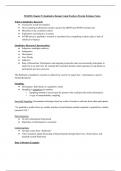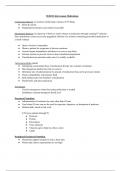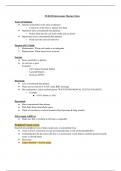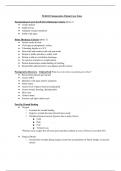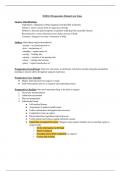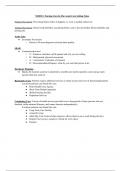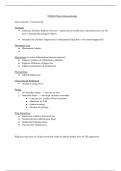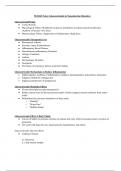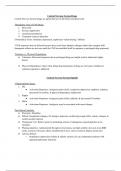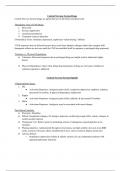University of Rhode Island
Latest uploads at University of Rhode Island. Looking for notes at University of Rhode Island? We have lots of notes, study guides and study notes available for your school.
-
306
- 0
-
17
All courses for University of Rhode Island
Latest notes & summaries University of Rhode Island
Lecture notes focusing on qualitative research and its key characteristics that are discussed throughout the entirety of the course. Table comparing qualitative and quantitative research.4 points to evaluate trustworthiness. Discusses data collection.
Lecture notes focusing on IV medication administration. Compares important points about continuous and intermittent IV meds. Parenteral nutrition discussed. Important guidelines and procedures for administering blood products that show up on quizzes/exams that are worth studying.
IV therapy lecture notes. Discusses the difference between isotonic, hypotonic, and hypertonic solutions. Outlines peripheral venous access compared to central as well as thoroughly discusses the several types of CVADs. Important nursing management and interventions mentioned.
Detailed notes on postoperative patient care. Discharge criteria, recovery assessments, dressings, post-op complications explained, wound complications, difference between dehiscence and evisceration which should be studied for exam.
Very in-depth 5 pages of notes regarding preop care. Surgery classifications and suffixes that are important to know for exams. Important preoperative checklist. Detailed patient history, assessment, nutrition, and medication history explained. Informed consent which is very important and time-out procedure that is seen many times throughout the course.
Lecture notes for introduction to care in the acute setting. Good introduction to class.
Lecture notes focusing on glucocorticoids/corticosteroids. Therapeutic uses, mechanisms, withdrawal, dosage, and important interactions are all mentioned.
Lecture notes focusing on glucocorticoids/corticosteroids. Therapeutic uses, mechanisms, withdrawal, dosage, and important interactions are all mentioned.
In-depth notes regarding 3 classes of opioids. Opioid agonists, agonist-antagonists, and antagonists are clearly organized with all the required information for studying. Withdrawal, another important topic is also discussed.
Lecture notes focusing on central nervous system drugs and opioids. Very content-heavy chapter. These notes neatly outline the 3 classes of opioids and their activation responses. Opioid agonist, agonist-antagonist, and antagonist prototypes are also present as well as the important categories of each being: effects, therapeutic use, pharmacokinetics, and adverse effects. *Very important info to study for exam* Lastly opioid withdrawal and the 10 important symptoms are talked about.

